Job Details
Title- Hood Canal Fish Monitoring Biologist
Classification- Fish & Wildlife Biologist 3
Job Status- Full-Time/Permanent
WDFW Program- Fish Program – Fish Science Division
Duty Station- Olympia, Washington – Thurston County
Hybrid/Telework- Although this is a hybrid opportunity, the successful candidate must be available to report to the duty station located in Olympia, WA as needed and will frequently travel to field sites near Seabeck, WA. The selected candidate may be able to telework/work remotely at the discretion of the supervisor and based on seasonal field obligations.
Learn more about being a member of Team WDFW!
With your experience, you will serve as the biologist leading fish monitoring for the Hood Canal Intensively Monitored Watershed (IMW). Through mark-recapture methods and various fish capture techniques, you will estimate salmonid abundance, survival, and life history diversity.
This is an opportunity to analyze and report data critical for assessing salmon responses to habitat restoration in a watershed-scale experiment across four (4) Hood Canal streams.
Your work, in collaboration with various project partners, will contribute to informing both salmon recovery efforts and harvest management decisions, directly supporting agency goals of sustaining healthy salmon and steelhead populations.
What to Expect-
Among the varied range of responsibilities held within this role, the Hood Canal Fish Monitoring Biologist will,
Oversee, conduct, and coordinate life cycle monitoring of adult and juvenile salmonids in four Hood Canal tributaries (Big Beef, Stavis, Seabeck, and Little Anderson creeks) near Seabeck, WA:
- Oversee the operation of fish traps at weirs designed to capture juvenile and adult salmon.
- Oversee adult spawner surveys.
- Serve as WDFW lead for inter-agency, collaborative summer parr surveys using electrofishing and seine net capture techniques.
- Design and implement mark-recaptures studies.
- Coordinate field work with Tribes, Federal, state, and local agencies.
- Oversee data entry, quality assurance/control, and data management in agency database and spreadsheet formats.
Analyze data and prepare written reports, manuscripts, and oral presentations that interpret biological results from the Intensively Monitored Watershed (IMW) study:
- Use statistic principles to estimate population abundances, migration timing, size distributions, fisheries impacts, environmental impacts, and other project outcomes from the IMW study.
- Collaborate with habitat biologists and IMW researchers conducting similar studies elsewhere to understand how streams change following restoration, and how salmon populations respond to restoration.
- Develop and deliver oral presentations describing project outcomes to a variety of audiences (Tribal/federal/state/local government, project partners, academia, stakeholders) at local workshops and professional meetings.
- Prepare written reports and peer-review manuscripts that describe project results, formulate conclusions, and generate recommendations for the management of salmon habitat and salmon populations.
Direct and supervise technical staff to achieve project objectives:
- Hire, train, evaluate performance, and direct technical staff to successfully conduct program.
Working Conditions:
Work Setting, including hazards: This position is stationed at the WDFW Headquarters, located in the Natural Resources Building in Olympia, WA. The incumbent will work in both an office environment and field setting.
Field work consists of operating fish traps and conducting stream surveys in Hood Canal streams near Seabeck, WA.
- Traps have minimal cover, are exposed to inclement weather, and are subject to highly variable river flows. Traps have moving parts, including winches for raising, lowering, and adjusting trap positions, and are subject to strong pressure, depending on stream flow conditions. Installing and removing traps, and other activities, occasionally involves lifting and carrying heavy equipment weighing up to 50 pounds.
- Stream surveys involve walking over slippery rocks, through dense vegetation, and exposure to stinging insects and inclement weather.
This position involves working in or near water, including tasks that require navigating, negotiating, and performing duties related to water environments.
Schedule: This is a full-time position (40 hours per week, five days). The position requires extended periods of fieldwork and may include night and weekend assignments.
Travel Requirements: Frequent travel to field sites near Seabeck, WA, is required. Occasional travel within Washington State may also be necessary to attend professional conferences, meetings, and workshops.
Tools and Equipment: Fish-capture gear (including smolt fences, permanent weirs, electrofishers, and seines), hand and power tools, chainsaws, generators, pumps, large trucks, boats, and trailers.
Customer Interactions: Project partners include WDFW Habitat Program, NOAA Fisheries, Washington State Salmon Recovery Funding Board, Hood Canal Coordinating Council, Hood Canal Salmon Enhancement Group, Washington Department of Ecology, and the Weyerhaeuser Company.
Requirements
Required Qualifications:
Option 1: A Bachelor’s degree in fisheries, wildlife management, natural resource science, environmental science, or related field.
AND
Three (3) years of professional experience in fish management/research, wildlife management/research, or habitat management/research.
Please note:
- A Master’s degree in the applicable science will substitute for one (1) year of the required experience.
- A Ph.D. in the applicable science may be substituted for two (2) years of the required experience.
- Closely related qualifying experience may be substituted for the required education on a year-by-year basis.
Option 2: Two (2) years as a Fish & Wildlife Biologist 2.
Certifications/Licenses:
Valid Driver’s License.
Preferred Qualifications:
In addition to the required qualifications, our ideal applicant will possess some or all the following:
Field Work:
- Experience with fisheries sampling techniques in rivers and streams, including smolt fences, weirs, electrofishing, redd surveys, snorkeling, and wading.
- Experience handling, identifying, and sampling adult and juvenile salmonids.
- Comfortable working in streams during challenging conditions (rain, cold, high river flow), including the ability to identify, avoid, and mitigate potential hazards in such environments.
Salmonid Ecology and Habitat:
- Knowledge of salmonid behavior, life history, ecology, and population dynamics.
- An understanding of stream attributes that provide spawning and rearing habitat for salmonids, and the physical processes by which restoration seeks to enhance salmon habitat.
Supervision:
- Experience training personnel, assigning work, evaluating performance, and providing feedback.
- A commitment to mentorship, creating a positive work environment, and fostering a productive team-oriented research culture.
Data Analysis:
- Ability to develop and execute analytical approaches to address scientific questions and ultimately draw conclusions from biological data based on facts and evidence.
- Experience with descriptive, comparative and advanced statistical approaches.
- Knowledge of statistical programming languages and/or platforms such as R.
- Experience entering, organizing, and querying large data sets using database software such as Microsoft Access.
Communication and Writing:
- Demonstrated success in writing scientific reports and peer-reviewed research articles.
- Ability to evaluate multiple sources of information, including data generated by the incumbent and the scientific literature, in order to synthesize a narrative that builds biological knowledge.
- Aptitude for critical thinking, intellectual autonomy, and crafting precise language.
- Experience presenting research findings at scientific conferences and to general audiences.
Special Requirements/Conditions of Employment:
Successful completion of agency trainings and/or certifications as assigned by supervisor and agency requirements, based on safety and job needs.
Agency trainings to be successfully completed within one (1) year of hire include but are not limited to:
- CPR/First Aid.
- Wilderness First Aid.
- Chainsaw Safety.
- Coldwater Inland.
- Swiftwater Rescue.
- Motorboat Operation Training Course (MOTC).
Applications should be submitted to:
Contact Information
Washington Department of Fish & WildlifeRecruitment Team
recruitmentteam@dfw.wa.gov
https://wdfw.wa.gov/
Your application should include the following:
- A completed online application showcasing how your qualifications align with the job requirements.
- An up-to-date resume or curriculum vitae (CV).
- A cover letter detailing your interest in the position, your relevant skills and experience, and why you are the ideal candidate.
- At least three professional references with current contact information.
Post Date: 8/27/2025 2:10:34 PM
Closing Date: 9/8/2025 12:00:00 AM

